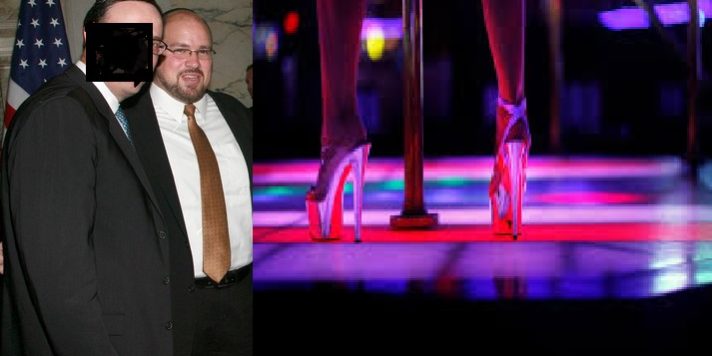Strip club is owned by organized crime
Gangsters, gangs, and organized crime have a long history dating back before Hollywood and somehow tied to glamour. However, what also has a long history is the cabaret. And we do not mean THE Cabaret, the musical inspired by Christopher Isherwood’s novel “Goodbye to Berlin.”
There seems to be a connection between organized crime and cabarets. It has been hinted that many criminals used to set up shop in such places and use it as a front. But why would criminal organizations want to use such a place crowded with people as a cover? And why have so many entertainment media (televisions and films) depicted cabarets, clubs, and similar as being run by gangsters? Well, let’s find out.
Life in the Movies
Many movies want to depict real life as best as they can in an entertaining way. This could be the reason why a lot of them show clubs, bars, and cabarets as fronts for organized crime. Some strip clubs could have been used to hire out sex workers or for drug traffickers to operate. However, why would someone want a front that attracts so many people? The answer is — hiding in plain sight.
Cabarets, in particular, have a lot going on. There are a lot of distractions so that customers don’t notice what is going on backstage. Plus, they are not even allowed to go backstage. There could also be some truth in using entertainment as a red-herring while getting a lot of legitimate and illegal money in. That’s why movies depict such places as being hotbeds of drama and fatal shootings.
However, in the real world, there are legal brothels where such activities do not unfold. Legal strippers are usually not prostitutes as well, and a client is not allowed to touch them, let alone pay for sex.
The Front Act
If we look at the movies such as the Tony Award-winning musical “Cabaret” starring Liza Minnelli, or the fairly well-loved “Moulin Rouge” starring Nicole Kidman, cabaret looks like a lot of fun. This could be the draw for illegal organizations that want to get more bang for their buck. They could run the legal side of it while also running underground operations in the back, such as:
- Drug trafficking
- Illegal gambling
- Money laundering
- Skimming profits off the top
- Tax evasion
- Sex trafficking
These activities unfold under the covers of the night scene. There are many clubs in the United States, especially in New York City, which is known for its theater scene and vivid nightlife. If one place gets busted, news can travel quickly so that others can have a “water problem” and close down shortly to “fix it.” Even if a legal club gets visited by the police, the ones that are used as fronts can have time to halt their illegal actions until the threat passes. There is safety in numbers, even if most other numbers are doing everything by the book.
Moreover, the truth of the matter is that people get drunk. Customers are more likely to buy drugs and have one too many in such environments. The chances of them giving a damn about what’s happening backstage are slim to non-existent. They often simply want to meet with their kept women or reinforce dancer mistress stereotypes in such places because the chances of getting caught are limited. This all goes to show that people can get away with a lot of things in these types of places. It seems that hiding in plain sight is a great idea.
The Transition to Legal Business
So you want to know how organized crime transitioned to legitimate businesses like clubs? They stopped doing the illegal stuff, paid taxes, and got all that should not be in a cabaret (drugs, even weapons) out, leaving no trace behind at all. Or they could just move venues and start anew.
Then the gangster would become a legitimate artistic director, and their biggest concern would be keeping the master of ceremonies happy and attracting wider audiences. This would be better than waiting for that, most likely, fatal shot or a police raid.
What Legitimate Businesses Can Learn From Organized Crime
There are a lot of skills that can be transferred from running an organized crime ring to a legitimate business venture. These include:
- Outsourcing
- Making long-term plans (aka planning ahead and keeping it going)
- Overcoming a challenge (criminals often find creative solutions to unexpected problems)
So there’s a lot to learn from criminal masterminds, and a lot of that can be transferred to running a legal business.
Final Word
So cabarets and similar places have long been connected to organized crime. However, times are changing, and these venues are now mostly what they present themselves to be — respectable businesses. However, the stereotype still pervades, and of course, there are still places that reinforce these deep-rooted cultural beliefs.
More developments to this story to be continued…







